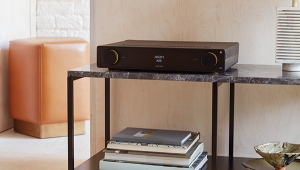| Columns Retired Columns & Blogs |
The Copy Wars Continue
Like the proverbial camel who took over the tent after getting just his nose in, it appears that once copy protection is given an inch, it will inevitably try to get in all the way. At least that's how it appears with an increasing variety of CD copy protection systems now currently being tested en masse by the major record labels. Latest to announce a new "evaluation agreement" is BMG Entertainment, which will use and evaluate SunnComm's MediaCloQ "digital content cloaking technology", first put to the test earlier in the year on a Charley Pride CD (see previous).
SunnComm claims that the MediaCloQ technology, which exploits differences between the "Red Book" standard for music CDs, formulated by Sony and Philips in 1980, and the "Yellow Book" standard for CD-ROMs and the "Orange Book" standard for CD-RWs, which were formulated later, is designed to help stem the tide of "illicit duplication of music offered on compact discs." With this agreement, BMG says, it will be able to test MediaCloQ as a part of its "overall approach to managing the use of copyrighted materials on CDs in a consumer friendly manner."
BMG's Sami Valkonen adds, "We have been studying ways to manage CD copying for a year now and are pleased with our initial experiences with SunnComm. We are focused on ensuring that we improve the consumer value of CDs with a drag-and-drop digital access of the music while at the same time taking the appropriate steps to safeguard our artists, copyright holders, and publishers against piracy. SunnComm's MediaCloQ can be an important part of this puzzle."
Although record labels are trying to put a positive spin on the addition of restrictions to regular music CDs, many fans have begun the inevitable process of undoing whatever the labels come up with. After Macrovision announced last month that it was secretly adding distortion to CDs—apparently by messing with the 8-to-14 modulation (EFM) data encoding—for several labels in an effort to prevent music files from being used on computers, websites such as CDFreaks.com immediately began to publish reports that hackers had developed methods to get around the restrictions.
The first recording using the SunnComm system, Charley Pride, A Tribute to Jim Reeves, also ran into opposition, as it immediately began to appear as MP3 files on the Internet after the CD's release. Although SunnComm claims that those files came from unprotected discs released in Australia, postings on the CDFreaks.com site claim to have cracked the MediaCloQ protection. As one poster on the site comments, "There, you see. There is no protection that couldn't be cracked. Every protection is only made to be broken!"
BMG abandoned an early attempt at copy protection last year when the company used a system from Midbar that resulted in 100,000 CDs being recalled. Yalkonen states "We learned a lot from that experience, especially in terms of playability. It's a process in which we're working to perfect it, and once it's perfect enough, then we're comfortable in rolling it out." BMG says that in addition to the test of SunnComm and second generation Midbar systems, it is also evaluating the Macrovision system and others from a handful of other companies.
- Log in or register to post comments




































